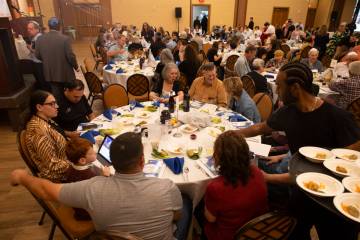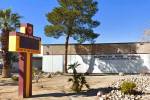Christians in Brazil create a ‘sin-free’ alternative to Facebook
![]() For some, hitting the “Like” button on Facebook just isn’t enough.
For some, hitting the “Like” button on Facebook just isn’t enough.
Luckily for those users, four Brazilian evangelical Christians have created a new, “sin-free” version of Facebook called Facegloria that allows users to click “Amen” instead of “Like” when they approve of a post, according to Vice News.
The group decided to create the Facebook alternative because they disapproved of the “vile, pornographic filth Zuckerberg allows on his social network,” according to Vice News.
“On Facebook, you see a lot of violence and pornography,” Atilla Barros, one of the website’s founders, told The Telegraph. “That’s why we thought of creating a network where we could talk about God, love and to spread his word.”
Facegloria, which has attracted 100,000 users so far, is under constant surveillance by 20 volunteer patrol users, who look to eliminate bad language, risqué selfies and bikini photos from the website, according to The Telegraph. In fact, more than 600 words have been banned from the website, as well as any erotic content and homosexual material, The Telegraph reported.
“We want to be morally and technically better than Facebook. We want all Brazilian Evangelicals to shift to Facegloria,” Barros told The Telegraph.
People from outside the South American country can sign up, too, but the site is written in Portuguese, so you may need Google Translate to fully use the website.
However, don’t go grabbing your pocket translator just yet. BBC reported that the developers plan on bringing this version of Facebook to other countries, including English-speaking nations.
“Our network is global,” Acir dos Santos, mayor of Ferraz de Vaconcelos in Brazil and investor in the website, told BBC. “We have bought the Faceglory domain in English and in all possible languages. We want to take on Facebook and Twitter here and everywhere.”
This may be a welcomed social media website for Americans in the future. Facebook has long had issues with pornographic and illicit material surfacing on its pages, which has enraged some users, according to Ad Week.
More than just a place to escape the illicit Facebook material, Facegloria allows Brazil’s evangelical population — of which there are about 20 million in the country, according to Americas Quarterly — to meet and talk about God, Vice reported.
This means that Facegloria may be another way for religious communities to come together to talk about their beliefs without being disrupted by the unfaithful, CNET reported.
That may have a positive influence on some Internet users. Religious communities, especially those that are not online, have been known to create benefits for people, including those who don’t follow one particular faith, according to Jeffrey Dorfman of Forbes. Religious communities often have social networks and events that unite the community.
And, as Dorfman points out, those within a religious community who attend weekly services live longer, commit fewer crimes and give more money to charity, which, in turn, improves their surrounding community, Dorfman wrote.“In total, churches have diverse positive impacts on communities, ranging from increased trust, improved mental and physical health, decreased crime and enhanced levels of volunteering and community outreach,” Andy Lewis, an assistant professor at the University of Cincinnati, wrote for The Ethics & Religious Liberty Commission in a 2008 paper. “These attributes build norms and values that encourage political stability and economic performance. Churches contribute to vitally important components of successful societies, and their presence in communities provides many benefits that cannot be measured solely by direct revenue.”
RELATED
Is technology good for religion?




























